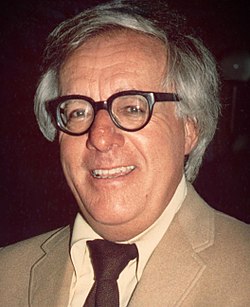Ray Bradbury Quote
Cuando muere, todo el mundo debe dejar algo detrás, decía mi abuelo. Un hijo, unlibro, un cuadro, una casa, una pared levantada o un par de zapatos. O un jardínplantado. Algo que tu mano tocará de un modo especial, de modo que tu alma tengaalgún sitio a donde ir cuando tú mueras, y cuando la gente mire ese árbol, o esa flor, quetú plantaste, tú estarás allí. «No importa lo que hagas -decía-, en tanto que cambies algorespecto a como era antes de tocarlo, convirtiéndolo en algo que sea como tú después deque separes de ellos tus manos.
Ray Bradbury
Cuando muere, todo el mundo debe dejar algo detrás, decía mi abuelo. Un hijo, unlibro, un cuadro, una casa, una pared levantada o un par de zapatos. O un jardínplantado. Algo que tu mano tocará de un modo especial, de modo que tu alma tengaalgún sitio a donde ir cuando tú mueras, y cuando la gente mire ese árbol, o esa flor, quetú plantaste, tú estarás allí. «No importa lo que hagas -decía-, en tanto que cambies algorespecto a como era antes de tocarlo, convirtiéndolo en algo que sea como tú después deque separes de ellos tus manos.
Related Quotes
About Ray Bradbury
Ray Douglas Bradbury (US: BRAD-berr-ee; August 22, 1920 – June 5, 2012) was an American author and screenwriter. One of the most celebrated 20th-century American writers, he worked in a variety of genres, including fantasy, science fiction, horror, mystery, and realistic fiction.
Bradbury is best known for his novel Fahrenheit 451 (1953) and his short-story collections The Martian Chronicles (1950), The Illustrated Man (1951), and The October Country (1955). Other notable works include the coming of age novel Dandelion Wine (1957), the dark fantasy Something Wicked This Way Comes (1962) and the fictionalized memoir Green Shadows, White Whale (1992). He also wrote and consulted on screenplays and television scripts, including Moby Dick and It Came from Outer Space. Many of his works were adapted into television and film productions as well as comic books. Bradbury also wrote poetry which has been published in several collections, such as They Have Not Seen the Stars (2001).
The New York Times called Bradbury "An author whose fanciful imagination, poetic prose, and mature understanding of human character have won him an international reputation" and "the writer most responsible for bringing modern science fiction into the literary mainstream".
Bradbury is best known for his novel Fahrenheit 451 (1953) and his short-story collections The Martian Chronicles (1950), The Illustrated Man (1951), and The October Country (1955). Other notable works include the coming of age novel Dandelion Wine (1957), the dark fantasy Something Wicked This Way Comes (1962) and the fictionalized memoir Green Shadows, White Whale (1992). He also wrote and consulted on screenplays and television scripts, including Moby Dick and It Came from Outer Space. Many of his works were adapted into television and film productions as well as comic books. Bradbury also wrote poetry which has been published in several collections, such as They Have Not Seen the Stars (2001).
The New York Times called Bradbury "An author whose fanciful imagination, poetic prose, and mature understanding of human character have won him an international reputation" and "the writer most responsible for bringing modern science fiction into the literary mainstream".
